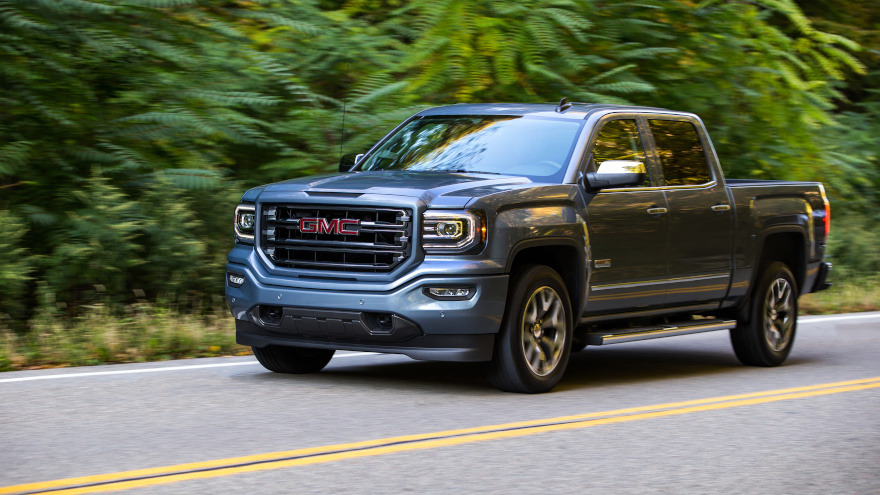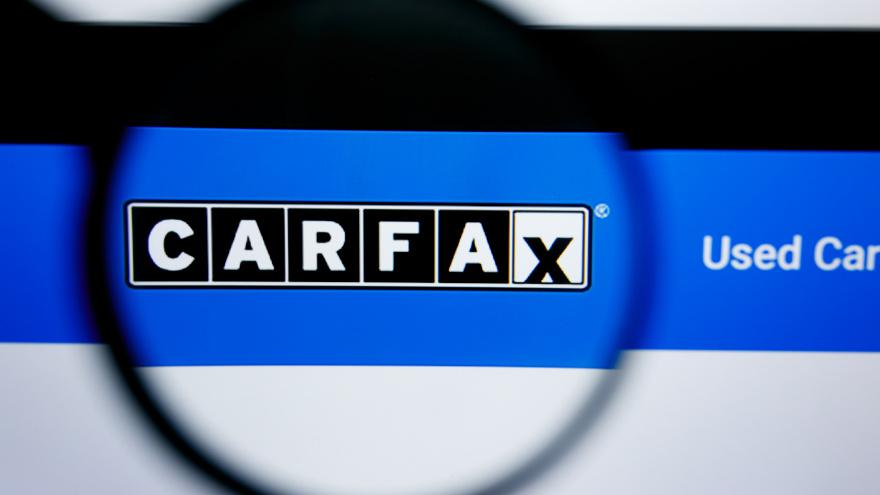Ken Robinson, who is market research manager at Motus, joins the show to discuss his company's 2020 Vehicle Depreciation Trends Report.
Ken and Auto Remarketing senior editor Joe Overby discuss used-car pricing and supply dynamics, vehicle affordability, segment preferences and vehicle demand trends.
To listen to the entire conversation, click on the link available below, or visit the Auto Remarketing Podcast page.
Download and subscribe to the Auto Remarketing Podcast on iTunes or on Google Play.
Karl Brauer says the average new vehicle loses almost half of its value after five years. But some vehicles retain more of their value and depreciate less than average, said Brauer, who is executive analyst for car search engine company, iSeeCars.com.
To identify models with the lowest and highest loss in value after five years, iSeeCars conducted a study analyzing more than 8.2 million car sales.
Trucks, truck-based SUVs and sports cars retain the most value. Luxury sedans depreciate the most.
“For consumers who purchase new vehicles and plan to sell them in the first five years of ownership, choosing a model that retains the most value is a smart economic decision, especially when you consider depreciation is the single large ‘cost' to owning a vehicle,” Brauer said in a news release.
The vehicle with the lowest five-year depreciation: The four-door Jeep Wrangler Unlimited.
The vehicle with the highest: The BMW 7 Series, with an average five-year depreciation of 72.6%.
iSeeCars’ main message in the study is that car depreciation matters. The company says understanding a vehicle’s depreciation is an important factor in helping new and used car shoppers make an informed purchase decision.
Jeep Wranglers: Well-known for value retention
To help people stay informed, iSeeCars started its study by noting which vehicles depreciate the least. After the Wrangler Unlimited with an average five-year depreciation of 30.9%, the Toyota Tacoma came in at No. 2 with a 32.4% average five-year depreciation. The Jeep Wrangler came in at No. 3, followed by the Porsche 911 and the Toyota Tundra.
Toyota led with three vehicles in the top 10, as the Tundra came in at No. 5 and the 4Runner placed sixth.
The Jeep Wrangler Unlimited loses just $12,168 after five years on average. The Jeep Wrangler loses $10,824.
Brauer said that because of their enduring popularity and their durability and performance across all terrains, Jeep Wranglers are known for retaining their value.
“Jeep Wranglers also have maintained their iconic design, so even older models don’t appear dated,” Brauer said.
Four pickup trucks, including the second-ranked Toyota Tacoma, the Toyota Tundra at No. 5, the ninth-ranked GMC Canyon, and the Nissan Frontier at No. 10, made the list.
Brauer said Toyota trucks have a strong reputation for reliability and quality. Consumers who want a rugged hauler and who want a dependable family vehicle like the Tacoma and Tundra, he said.
“The redesigned GMC Canyon holds its value due to its heightened demand from its production hiatus for the 2013 and 2014 model years, making the all-new 2015 model a desirable used truck,” Brauer said, adding that the Nissan Frontier, which has not undergone a redesign since 2004, holds its value because one of the most affordable pickup trucks.
Three models on the list are sports cars. The Porsche 911 came in at No. 4, the Subaru WRX placed seventh, and the Dodge Challenger ranked No. 8.
Brauer explained that Porsche maintains a tight inventory.
“So there aren’t many 911s in the used-car marketplace, and people are willing to pay a premium because it’s an aspirational car,” Brauer said. “The Subaru WRX is also produced in low supply, while the Dodge Challenger has a competitive starting price for the segment and is in high demand because of its classic nature, iconic styling and strong performance.”
The Toyota 4Runner midsize SUV comes in at No. 6, and iSeeCars said that vehicle depreciates 38.5% after five years.
“The Toyota 4Runner has Toyota’s reputation for reliability and indestructibility as a truck-based SUV,” Brauer said. “It has also enjoyed enduring popularity since its release over 35 years ago, which helps contribute to its strong value retention.”
These vehicles depreciate the most
Listing the cars that depreciate the most after five years, iSeeCars said that compared to the average vehicle, the highest-depreciating vehicles lose between 35.4% and 47.9% more of their original value.
Luxury sedans account for eight out of 10 models on the list, with iSeeCars naming the BMW 7 Series superluxury sedan as showing the highest five-year depreciation.
That vehicle loses 72.6% of its value after five years, which amounts to $73,686.
“Expensive luxury vehicles like the BMW 7 Series depreciate steeply because they include expensive features and technology that aren’t valued among used-car buyers,” Brauer said.
The BMW 5 Series ranked second on the highest-depreciating vehicles list. Additional luxury sedans on the list include the fourth-ranked Audi A6, the Maserati Ghibli at No. 5, the sixth-ranked Mercedes-Benz E-Class, the Volvo S60 at No. 7, the eighth-ranked Mercedes-Benz S-Class, and the Lincoln MKZ at No. 9.
Brauer said luxury vehicles depreciate at a higher rate because they are often leased.
That leads to a surplus of three-year-old off-lease versions of those vehicles and results in lowered demand for the older models, Brauer said.
“Moreover, the popularity of sedans has declined, so the price has to significantly drop to make these vehicles desirable in the secondary marketplace to compensate for their high operating costs and outdated technology,” Brauer said.
Regarding the Nissan LEAF, which ranked second, Brauer said that vehicle’s steep depreciation can be attributed to government incentives. Its resale value is based on its lower effective post-incentive sticker price, Brauer said.
“Electric vehicles like the Nissan LEAF also become outdated quickly due to the rapid advancements in range and battery life,” Brauer said.
The tenth-ranked BMW X3 SUV is the third BMW to make the list, and Brauer said a reason for that automaker’s steep depreciation is the high repair and ownership costs of BMWs.
Additional depreciation tidbits
The Honda Fit is the lowest-depreciating vehicle under $25,000, while the Mitsubishi Mirage is the highest-depreciation vehicle under that price. The study also lists the lowest and highest-depreciating vehicles under $35,000, and under $50,000. The Volvo S60 is the highest-depreciating vehicle under $50,000, with an average 5-year depreciation of 67.8%.
By segment, the BMW X3 is the highest-depreciating SUV, and the Tesla Model S shows the lowest average five-year depreciation for hybrid and electric vehicles, at 48.6%.
Another main message from the study: Consumers should anticipate their long-term needs when purchasing a vehicle.
“If you plan on trading in or selling your vehicle after a few years, a car that retains most of its value can put more money in your pocket for your next car purchase,” Brauer said. “Conversely, if you are a used car shopper, choosing a car that has already taken a depreciation hit can provide you with a substantial deal.”
Top 10 Vehicles With the Lowest Depreciation
| Model |
Average 5-year depreciation |
$ difference |
| 1. Jeep Wrangler Unlimited |
30.9% |
$12,168 |
| 2. Toyota Tacoma |
32.4% |
$10,496 |
| 3. Jeep Wrangler |
32.8% |
$10,824 |
| 4. Porsche 911 |
36.0% |
$56,133 |
| 5. Toyota Tundra |
37.0% |
$17,020 |
| 6. Toyota 4Runner |
38.5% |
$16,325 |
| 7. Subaru WRX |
39.8% |
$14,192 |
| 8. Dodge Challenger |
40.6% |
$16,303 |
| 9. GMC Canyon |
41.2% |
$16,115 |
| 10. Nissan Fronteir |
43.5% |
$12,823 |
| Average for All Vehicles |
49.1% |
|
With five apiece, Honda and Toyota each received the most model-level awards for resale value as the J.D. Power 2020 U.S. Resale Value Awards recognized the best resale value across 25 model-level vehicle segments following three years of ownership.
Honda and Toyota were followed by Lexus with four model-level awards and Chevrolet and Dodge, which each received two model-level awards.
The model with the best overall resale value? That honor goes to the GMC Sierra 3500.
Model-level resale value awards
— Honda: Honda Accord, Honda Civic, Honda Fit, HR-V and Honda Odyssey
— Toyota: Toyota 4Runner, Toyota 86, Toyota Prius v, Toyota Tacoma and Toyota Tundra
— Lexus: Lexus GS, Lexus LX, Lexus NX, and Lexus RX
— Chevrolet: Chevrolet Corvette and Chevrolet Tahoe
— Dodge: Dodge Challenger and Dodge Charger
Additional models ranking highest in their respective segments are Audi Q3, Genesis G90, GMC Sierra 3500, Infiniti Q60, Jeep Wrangler, Mercedes-Benz B-Class and Porsche Cayman.
The study also listed top models per segment in the SUV, van, and pickup segments. Some of those winners included the Honda HR-V in the small SUV category, the Jeep Wrangler in the compact SUV category and the Toyota Tacoma in the midsize pickup category.
For the 2020 award process, J.D. Power evaluated 270 vehicle models using a sample of more than 592,000 transactions with an average of 2,200 data points assessed on each vehicle. The award selection process utilizes used-vehicle wholesale prices, and those represent how much a dealer pays for a used vehicle. Those prices are then divided by the vehicle’s original purchase price. The calculations are based on wholesale records from May through September 2020 for three-year-old vehicles.For the 2020 calculation, 2017 is the applicable model year.
Top 3 models per segment
Small car
Honda Fit
Toyota Prius c
Toyota Yaris iA
Small premium car
Mercedes-Benz B-class
Acura ILX
Lexus CT
Compact car
Highest ranked: Honda Civic
Subaru WRX (tie)
Toyota Prius (tie)
Compact sporty car
Highest ranked: Toyota 86
Volkswagen GTI
Subaru BRZ
Compact premium car
Highest ranked: Infiniti Q60
Lexus IS
Lexus RC
Compact premium sporty car
Highest ranked: Porsche Cayman
Porsche Boxter
Audi TT
Midsize car
Highest ranked: Honda Accord
Toyota Camry
Chevrolet Malibu
Midsize sporty car
Highest ranked: Dodge Challenger
Ford Mustang
Chevrolet Camaro
Midsize premium car
Highest ranked: Lexus GS
Genesis G80
BMW 5 Series
Midsize premium sporty car
Highest ranked: Chevrolet Corvette
Nissan GT-R
Porsche 911
Large car
Highest ranked: Dodge Charger
Chevrolet SS
Chrysler 300
Large premium car
Highest ranked: Genesis G90
Kia K900 (tie)
Porsche Panamera (tie)
CarEdge.com, a provider of analytical tools that automotive dealers and leasing companies use to assess vehicles’ current and future values, has introduced a vehicle financing calculator that compares the expected depreciation of a vehicle with the future balance on a car loan.
The company designed the calculator to make consumers aware of the risks associated with certain car loans. CarEdge said the calculator can help consumers stay away from loan structures that will put them into difficult financial positions.
The company also launched its vehicle resale rankings. The rankings highlight vehicle brands and models that hold their values well, and those that do not. Its top five popular brands for five-year resale value are Subaru, Toyota, Honda, GMC and Jeep.
The company also announced that by the end of October it would achieve its 5 millionth visitor page view, and that the page views are 100% organically sourced. The company said it reached the milestone well ahead of company and investor forecasts.
CarEdge site visitors can now experience tools and resources on its automotive research and listings site, including the ability to shop from more than 4 million new- and used-vehicle listings. They can calculate loan payments and balances versus the expected depreciation of the vehicle.
Users can also receive competitive insurance quotes from multiple auto insurance providers and view the resale value rankings of more than 200 vehicle brands and models, ranked from best to worst.
They can also view the predicted resale value of more than 300 vehicle models. CarEdge said that capability means site visitors can interact with its vehicle resale calculator.
Users can also compare vehicles’ historical resale results in one graphical view.
CarEdge said it has seen interest from vehicle shoppers looking to make more educated decisions regarding their vehicle purchases.
Company president Scott Baker said the vehicle financing calculator is unique, stating, “We really want to make sure that people don’t get in over their head with their car loans.”
Baker added, “We are giving car shoppers a useful tool to make them aware of the financial risks of being ‘upside down’ in their loan — an unenviable position that traps people in their loan, because they owe more than their car is worth.”
Predictive analytics and marketing automation company automotiveMastermind has integrated its Market EyeQ sales platform with CARFAX History-Based Value, or CHBV, noting that the integration comes at a time when dealers are using trade-in vehicles more to supplement inventory shortages and rising wholesale prices.
Mastermind said with the integration, dealers will be able to choose CHBV as their preferred valuation tool when evaluating a trade-in vehicle.
Mastermind and CARFAX are part of IHS Markit. That, according to the companies, boosts both organizations’ products by “highlighting the advantage of high-quality data partnerships.”
The integration, according to Mastermind, aligns with Mastermind’s goal of enhancing Market EyeQ to allow its dealer partners to sell more cars with high returns.
Noting that CARFAX has more than 24 billion vehicle records, Mastermind said CHBV is a VIN-specific valuation tool that is powered by unique CARFAX vehicle history data.
CHBV weighs several factors. Those include driver’s home location, the VIN-specific history of that vehicle, and current market conditions. It accounts for vehicle history, so no two vehicles can be priced the same when using CHBV.
That provides full transparency to both sides of the vehicle transaction, according to Mastermind.
For dealers partnered with Mastermind, CHBV provides the retail, wholesale and certified prices of vehicles with model years of 2000 or newer.
CHBV also takes a vehicle’s year, make, model, mileage, location and condition into consideration. It also factors in current market conditions.
That allows dealers to better acquire inventory their customers want, according to Mastermind.
To calculate the trade-in value of vehicles, Market EyeQ uses CHBV wholesale vehicle valuations. That fuels personalized, predictive marketing campaigns and calculated deals that the company says are designed to drive ROI.
In addition to dealers increasingly using trade-in vehicles to supplement inventory shortages and rising wholesale prices, consumers are also becoming more interested in purchasing pre-owned vehicles. With the availability of CHBV into Market EyeQ, dealers will gain better insight into a vehicle’s history.
That will allow them to more accurately calculate trade valuations and reconditioning costs and support market-based inventory pricing.
Mastermind co-founder and chief executive officer Marco Schnabl said that because of the automotive information in the IHS Markit portfolio, combining forces with CARFAX will allow Mastermind to provide an accurate picture of a customer’s trade and vehicle’s lifecycle for its mutual dealer partners.
“We pride ourselves on empowering dealers to take a data-driven approach to build lasting relationships with their customers and ultimately sell more cars,” Schnabl said in a news release.
Schnabl continued, “This integration not only aligns with those goals but also comes at a time when we’re especially focused on helping dealers grow their pre-owned vehicle sales in response to increased consumer demand.”
“It’s important to not just look at year, make and model for valuation,” said Bill Eager, CARFAX vice president of the Dealer Business unit.
Eager continued, “CARFAX is uniquely positioned to provide the vehicle specific value based on characteristics like 1-owner or a clean title. Dealers have long relied on CARFAX vehicle history as a key factor when evaluating and pricing used cars for their inventory. This partnership will give our dealers a new avenue on Market EyeQ to better understand the value of a specific vehicle and make sure they’re getting the best return on their investment.”
Black Book analysts made the connection of how federal stimulus payments and enhanced unemployment benefits given during April and May combined with limited used-vehicle inventory combined to create the highest weekly appreciation “in recent history.”
According to Black Book’s newest COVID-19 Market Update released on Tuesday, overall car and truck segments values both generated gains for the fourth week in a row, increasing 1.27% overall.
Black Book’s volume-weighted pricing information for both cars and trucks revealed value hikes last week much higher than a week earlier. Analysts said overall car segments increased by 1.54% (compared to 0.88% the prior week) and the overall trucks and SUV segments increased again this past week at 1.11% (compared to 0.52% during the prior week).
Specific vehicle segments generating the highest value increases included compact cars (up 2.29%) and small pickups (up 2.89%).
“Both the small pickup and compact car segments experienced very large depreciations at the onset of the pandemic but have been consistent in the rebounding of prices week after week,” analysts said in the latest update.
“Minivans also had a second week of increasing prices at 2% after 11 consecutive weeks of declines,” Black Book added.
Despite the value increases, Black Book described auction activity this past week as “on fire” with high conversion rates and high sale prices.
“Most no-sales this past week were the result of sellers holding firm to floors and not due to a lack of demand by the buyers. As a result, buyers are having to pay top dollar to secure quality inventory,” analysts said.
Meanwhile, Black Book highlighted that dealers are enjoying strong used-vehicle sales overall so far this month. However, the success of retailing those used vehicles is creating problems for managers in finding replenishment inventory.
“The lack of repossessions, delayed lease returns and staffing limitations at the auctions are all contributing to low inventory levels at the auctions,” analysts said. “The estimation is that it will be at least two more weeks before we start to see an increase at many auctions around the country.”
Black Book then addressed what could be a path of quality used-vehicle inventory — rental risk units. But just like so many other business tasks during the coronavirus pandemic, getting those vehicles through the wholesale industry is easier said than done.
“Although we see some recovery in rental demand (outside of airport business), we measured a substantial increase (compared to previous weeks and compared to last year) in volume of rental units sold, as rental fleet companies are beginning to de-fleet and reduce their fleets to match much weaker consumer and business traveler demand,” Black Book said.
“As the supply continues to grow, we are concerned with the throughput at major auctions as they continue to operate with reduced staff,” analysts continued. “In our continuous conversations with management teams from major auction chains, they report that they are trying to execute on the increased volume and customer demand without immediately bringing back significant amounts of furloughed staff.
“There is a concern that this uptick may be short-lived and the need for increased staff may be temporary,” Black Book added.
The Manheim Used Vehicle Value Index established a new record to begin 2020.
Cox Automotive reported that wholesale used-vehicle prices (on a mix-, mileage- and seasonally adjusted basis) increased 0.39% month-over-month in January. That movement pushed the index to a new record high of 141.6, representing a 4.6% jump from a year earlier.
Following a normalizing trend in weekly Manheim Market Report (MMR) prices at the end of 2019, Cox Automotive indicated that January produced steady prices as expected. Overall, analysts found that 3-year-old vehicle values ticked down by 0.2% for the month.
Analysts added values of non-luxury vehicles in aggregate remained unchanged while values of luxury vehicles edged 0.7% for the month, “which is in line with historical performance.”
Cox Automotive added in the latest index that, “This January’s normal trend for prices was a marked improvement over last year’s declines.”
On a year-over-year basis, analysts discovered most major market segments saw seasonally adjusted price increases in January.
“Luxury cars outperformed the overall market, while most other major segments underperformed the overall market,” Cox Automotive said.
Specifically, those luxury values jumped 6.1%, according to Cox Automotive, which reported the other four segments that moved higher year-over-year included:
— SUV/CUV: up 4.2%
— Midsize cars: up 2.8%
— Compact cars: up 2.2%
— Pickups: up 1.4%
Meanwhile, van values softened 1.1% year-over-year.
Cox Automotive also mentioned rental-risk pricing increased in January.
Analysts reported the average price for rental risk units sold at auction in January climbed 4.4% year-over-year and 1.0% month-over-month. Analysts added that average mileage for rental risk units that went down the lanes in January came in at 51,300 miles, marking a 9% rise compared to a year ago but a 0.3% dip month-over-month.
Black Book watched its Used Vehicle Retention Index start 2020 with an upward move.
Analysts reported this week that their index reading for January came in at 114.5, representing a rise of 1.2 points from the December mark of 113.3.
In news release, Black Book executive vice president operations Anil Goyal explained why the firm’s index of wholesale values started the year by going higher.
“The used-vehicle values declined steeply in the fourth quarter of last year as automakers sweetened incentives to drive demand towards new inventory,” Goyal said. “However, the used market was resilient at the start of the new year with active buying in the wholesale channels.
“The used mainstream sedans and compact crossovers are seeing higher demand whereas the used pickup truck values are coming off their highs,” he continued.
The Black Book Used Vehicle Retention Index is calculated using Black Book’s published wholesale average value on 2- to 6-year-old used vehicles, as percent of original typically-equipped MSRP. It is weighted based on registration volume and adjusted for seasonality, vehicle age, mileage, and condition.
The index dates to January 2005 when Black Book published a benchmark index value of 100.0 for the market. During 2008, the index dropped by 14.1% while during 2016, the index fell by just 6.4%.
During 2011, the index rose strongly from 113.3 to 123.0 by the end of the year as the economy picked up steam and used-vehicle values rose higher. It continued to remain relatively stable, rising slightly until May of 2014 when it hit a peak of 128.1.
To obtain a copy of the latest Black Book Wholesale Value Index, go to this website.
Wholesale values spotted in the auction lanes during the past couple of weeks appear to be dropping faster than your eyelids after that delicious Thanksgiving meal the industry will soon enjoy.
According to the latest Black Book Market Insights report, value softening is especially prevalent among cars. Analysts indicated their volume-weighted data showed overall car segment values decreased by 1.05% last week.
In comparison, market values for cars dropped by 0.76% on average during the prior four-week period.
Among cars, Black Book reported values of compact cars (down 1.31%), midsize cars (down 1.21%) and sub-compact cars (down 1.13%) declined the most.
In the truck space, analysts indicated their volume-weighted information determined that overall truck segment values (including pickups, SUVs and vans) dropped by 0.67% last week. However, that decline wasn’t as significant as the four-week average, which was 0.81%
Black Book mentioned values of full-size vans decreased the most, sliding by 1.26%
In light of all that data and movements, Black Book executive vice president of operations Anil Goyal said in the latest report, “Used-vehicle values continue to decline steeply. In the last three weeks, vehicles have depreciated at the highest rate seen this year.”
Along with Goyal’s comments, Black Book also shared the anecdotes collected by representatives stationed in the lanes at nearly 60 sales nationwide. Here are the highlights:
— From South Carolina: “Prices remained soft as they have been the last few weeks with the higher (condition report) vehicles being down and the rougher ones bringing good money for their condition.”
— From Michigan: “The auction had a positive tone this week. It was good to see that the interest and bidding both perked up a little.”
— From Florida: “Lots of no-sales, many of which resulted from a lack of demand.”
— From Massachusetts: “In speaking with remarketers post-sale, several reported that their sold prices were just OK last week.”











